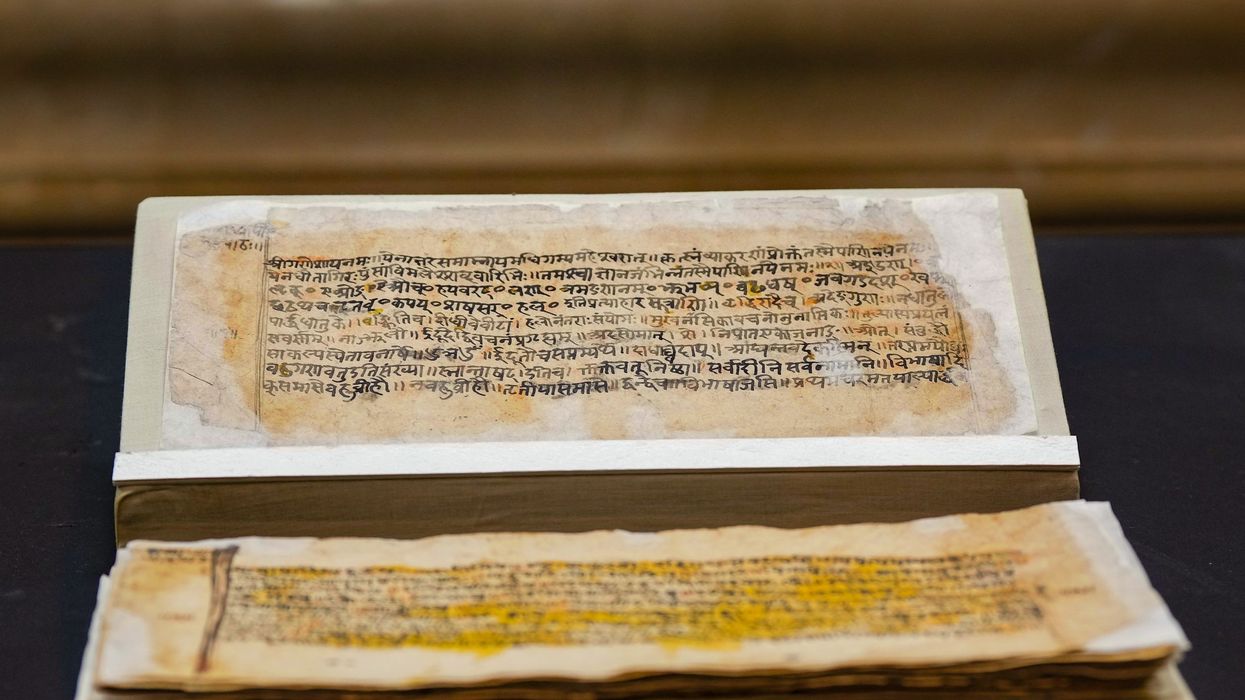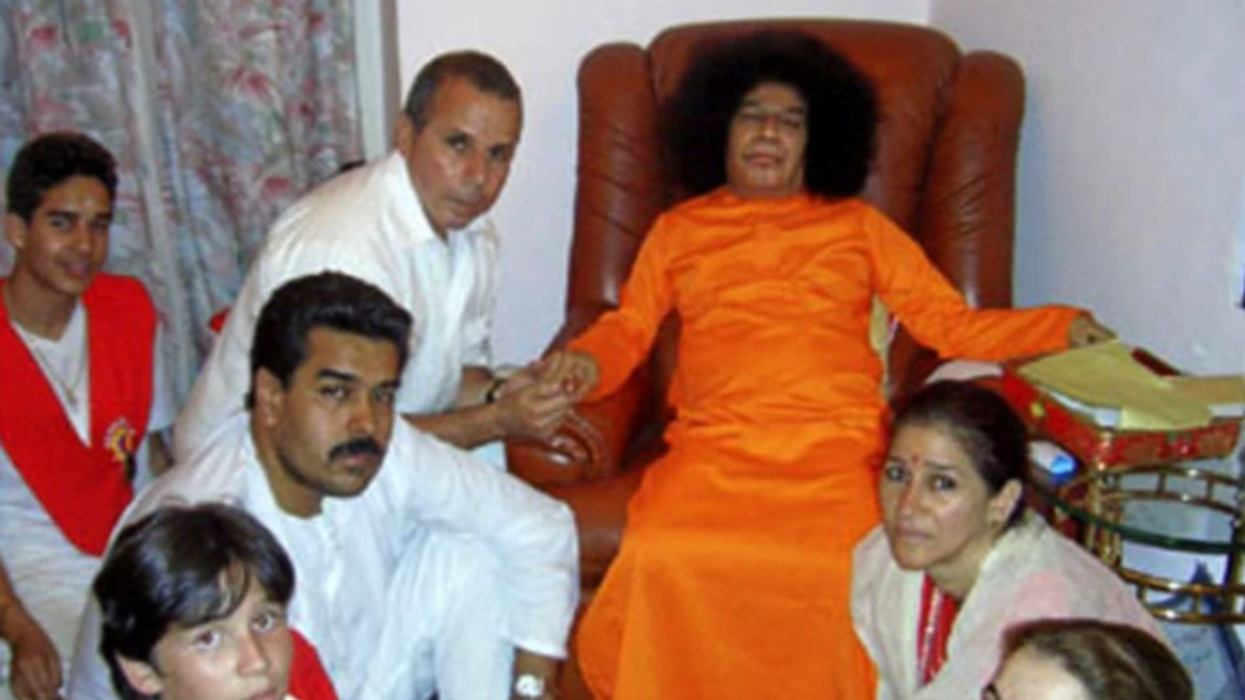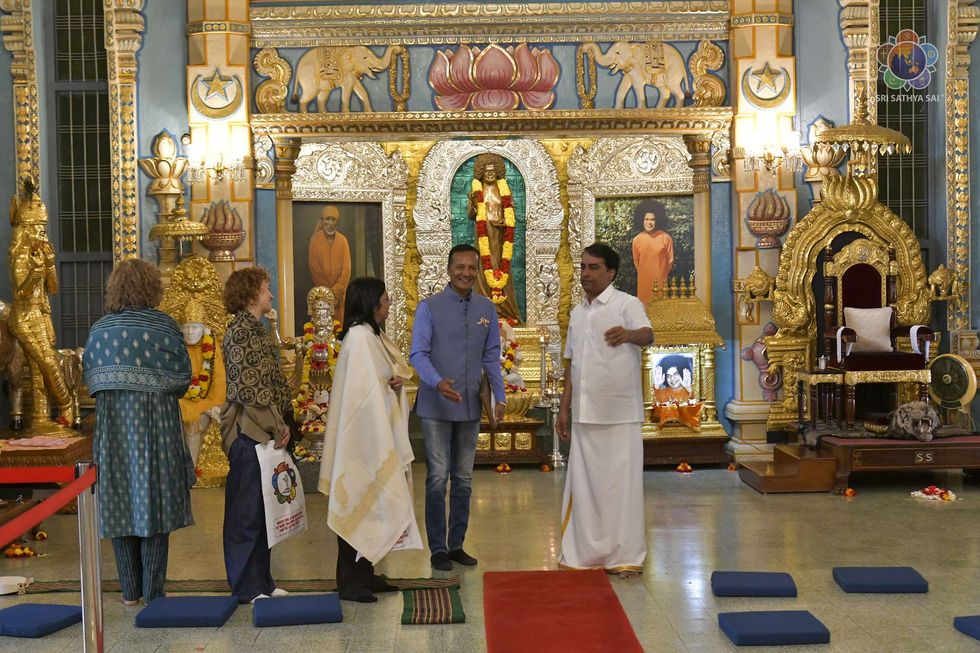The Rig Veda inscriptions and Panini's grammar treatise 'Ashtadhyayi,' which were India's contributions to the G20 'Culture Corridor' exhibition held at the summit venue, have been exhibited under the name of 'Bharat.'
The Rig Veda, an ancient Indian text representing the country's contribution to the international project in the 'symbols of democracy' category, is on display within a substantial glass case. It is exhibited alongside objects from the United States, France, Canada, and Argentina.
A nameplate in English mounted on the case briefly describes each of these rare items and places they have been sourced from.
There has been no official unveiling of the 'Culture Corridor -- G20 Digital Museum', which has been put up in the wide hallway skirting the 'Summit Meeting Room' and the 'Leaders' Lounge' at the newly-built Bharat Mandapam, and is not open to the public yet.
The project, which was curated especially for the G20 summit under India's presidency of the grouping, was informally unveiled on September 9, day one of the summit.
Prime minister Narendra Modi had addressed the G20 meeting with the country name identified as 'Bharat'.
While India and Bharat, both names are used to refer to the country in English and Hindi, 'India' has been used customarily in international fora.
The G20 summit thus further extended the 'India vs Bharat' debate, triggered after the G20 dinner invitation sent out by the Rashtrapati Bhavan referred to president Droupadi Murmu as the "President of Bharat".
The exhibition of artefacts -- in physical and digital form -- has been set up on the same floor where the leaders' meetings took place. They walked through this corridor while moving into and out of the summit room.
As part of this project, conceptualised about six months ago, India asked each G20 member and invited countries to make submissions under four categories -- physical object of cultural significance, "iconic cultural masterpiece" in digital format, high-resolution digital content depicting the intangible heritage and natural heritage of each of the countries.
India's submission under the object of cultural significance category is Panini's grammar treatise 'Ashtadhyayi' composed in the 5th-6th century BCE.
A digital panel next to it displays the Indian tricolour and the name 'Bharat' above it.
The text displayed on the panel can be read in six languages -- English, French, Mandarin, Russian, Spanish and Arabic.
Certified original copies of the US' Charters of Freedom, a 'fahua'-lid jar from China is among the other historic items displayed at the Bharat Mandapam as part of a G20 'Culture Corridor'.
In the immersive zone, digital components, comprising intangible cultural heritage, natural heritage, iconic cultural masterpieces, and symbols of democracy submitted by the membership, have been displayed.
The exhibit also showcases a 12-foot digital cube which displays the iconic masterpieces through anamorphic content, including Mona Lisa, the 16th century masterpiece by Leonardo da Vinci which is hung at the Louvre Museum in Paris.
In the intangible heritage category, India's submission is -- Yoga, Kumbh Mela, Vedic Chanting, lost wax tradition of bronze casting and double ikkat weaving Patan Patola of Gujarat.
In the natural heritage category, India's submission is -- the Himalayas, the Ganga, the India Ocean, the Living Root Bridge of Meghalaya, and the Royal Bengal Tiger.
Visuals of submissions made by India under the natural heritage category played on the three-piece mega screen with the title 'Bharat - Himalayas, Ganga, & Living Root Bridge', and with 'Bharat - Kumabh Mela And Yoga' when visuals on Kumbh Mela and Yoga, a submission made in the category of intangible cultural heritage, played in the immersive zone.
The Grand Canyon in the US and the Wadden Sea in the Netherlands are among the submissions from other countries in the natural heritage category.
Traditional archery -- Turkiye; Jeju Haenyeo (women divers) -- Republic of Korea; and Bolshoi Ballet -- Russia are among the submissions from other countries in the intangible cultural heritage category.
In the iconic cultural masterpiece category, Bhimbhetka cave paintings in Madhya Pradesh, dating back to approximately 30,000 years, has displayed in digital format from India's side.
An archaeological treasure, Bhimbetka has around 243 rock shelters and is a UNESCO World Heritage Site. On the digital cube, visuals of the cave painting play with the caption in English, mentioning the country name as 'Bharat.
(PTI)






 Delcy Rodríguez visited Prasanthi Nilayam on October 26, 2024, to pay her obeisances to Sai Baba. (Photo credit: Sri Sathya Sai Media Centre))
Delcy Rodríguez visited Prasanthi Nilayam on October 26, 2024, to pay her obeisances to Sai Baba. (Photo credit: Sri Sathya Sai Media Centre))





